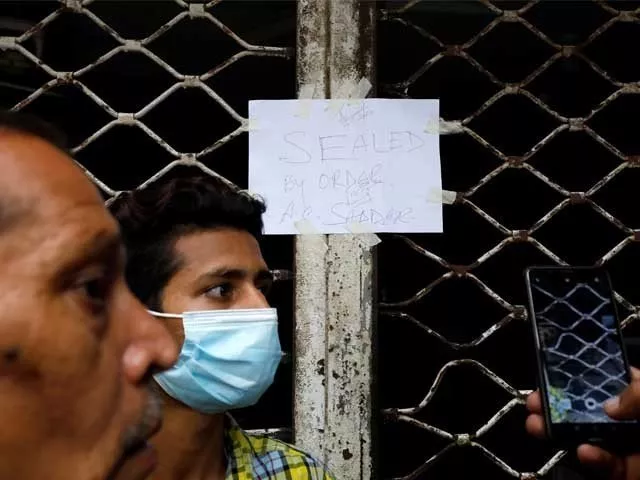No relief to masses despite Sindh govt’s tall claims
No implementation of rent concessions, school fee waivers, job security promised under new law
KARACHI: After much hype, the provincial government introduced the Sindh Covid-19 Emergency Relief Ordinance, 2020, to provide relief to the masses in the wake of the coronavirus pandemic. Despite making tall claims, however, the law could not be implemented and remained confined to paper.The ordinance was approved by the Sindh Cabinet and was promulgated by Sindh Governor Imran Ismail following controversy over several of its clauses. According to the law, landlords in the province, except for widows and senior citizens, would be required to defer or exempt tenants from paying their rents considering the ongoing economic situation.
It said that people living in apartments up to 800 square yards will be exempted from paying water bills, while no educational institution shall charge more than 80 per cent of the school fees, and no employer would lay off workers or stop their salaries. The law also ensured that violations could incur fines up to Rs1 million.
“Yesterday, I received a message from my children’s school to pay the fees and get the syllabus for the upcoming academic session,” Ahsan Zaidi, a resident of Clifton, said. “When I went there, the school administration charged the full fees, just like last month. These laws and government statements are just for cheap publicity. There is no implementation and people are considering it a joke,” he complained.
The Express Tribune carried out a survey in several areas of the city, including Gulshan-e-Iqbal, PECHS, Clifton, Defence View, Akhtar Colony and Saddar. However, the law does not seem to be in place anywhere.
“I am a rickshaw driver. During the lockdown in April and May, I could not step out of the house. When I asked my landlord to defer or lower the rent, he threatened to kick me out of the house,” said Ali Azmat, a resident of Akhtar Colony. “I pay Rs12,000 in rent and I requested my landlord to let me pay in two instalments, but he did not listen. Finally, I borrowed the money and paid him because I had no other option.”
Akin to Azmat, a widow who used to work in a garment factory said she also did not receive any relief or concession and was forced to pay the rent in full despite being laid off from her job.
“The majority of the workers in our garment factory have been kicked out, including me. I have three children to feed, therefore, I requested some of my relatives in Punjab to lend me some money so that I could pay the rent and manage my kitchen,” she lamented.
The ordinance was drafted soon after the provincial government announced a lockdown in the last week of March. One of its clauses even detailed the rights of employees and ensured them protection from undue layoffs.
Contrary to that, thousands of employees from different factories and various companies have been sent home.
A Karachi-based labour rights activist, Zahra Khan, claims that around six million workers have been laid off since the Covid-19 outbreak in the province.
“Most of the workers who have been fired are linked to the textile and garment sector. The Sindh government issued an ordinance and the labour minister ensured job safety in a press conference, but nothing has been done,” she said.
When approached, Sindh Chief Secretary Mumtaz Ali Shah said that factory owners and different companies had assured the government by giving written statements that they would not lay off employees and would pay salaries on time
“The labour department has recently written to factory owners, the employers’ federation, and shopping malls, to live up to their promises, otherwise strict action would be taken against them along with a possible fine of Rs1 million,” he added.
Published in The Express Tribune, June 16th, 2020.


COMMENTS
Comments are moderated and generally will be posted if they are on-topic and not abusive.
For more information, please see our Comments FAQ